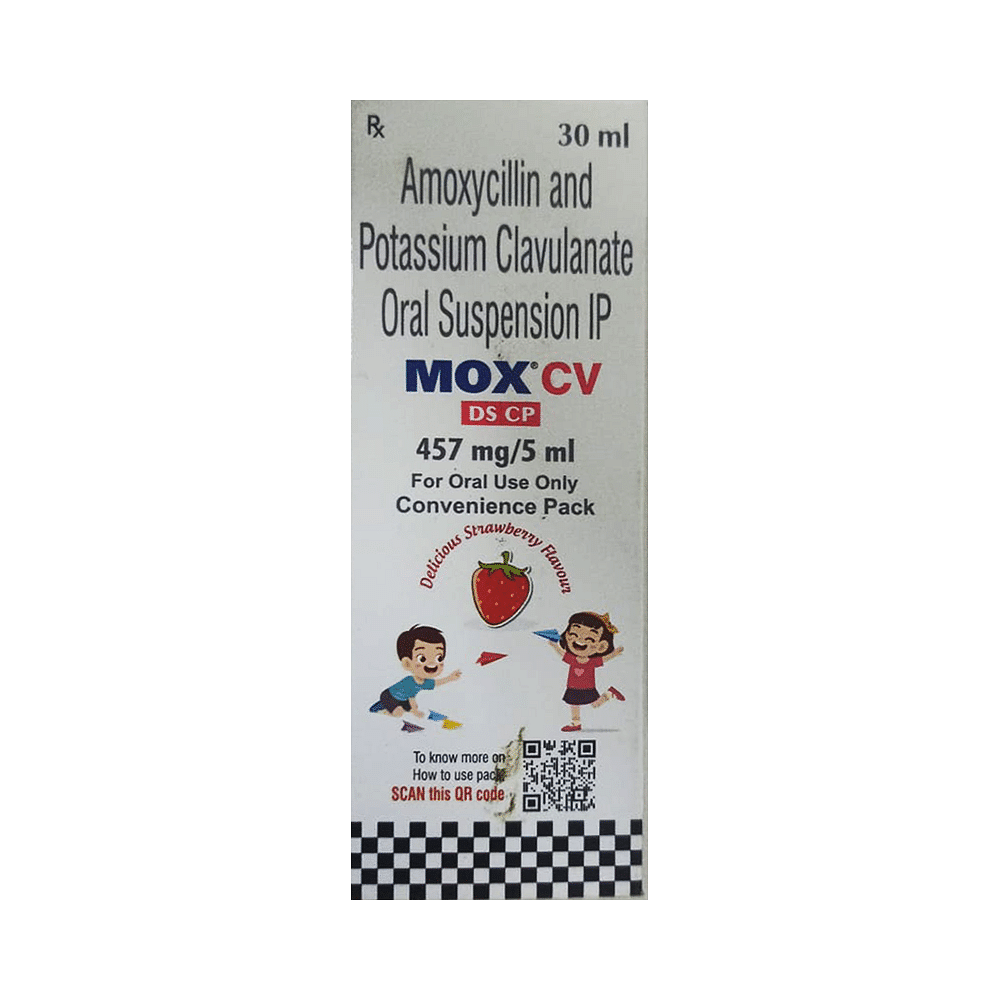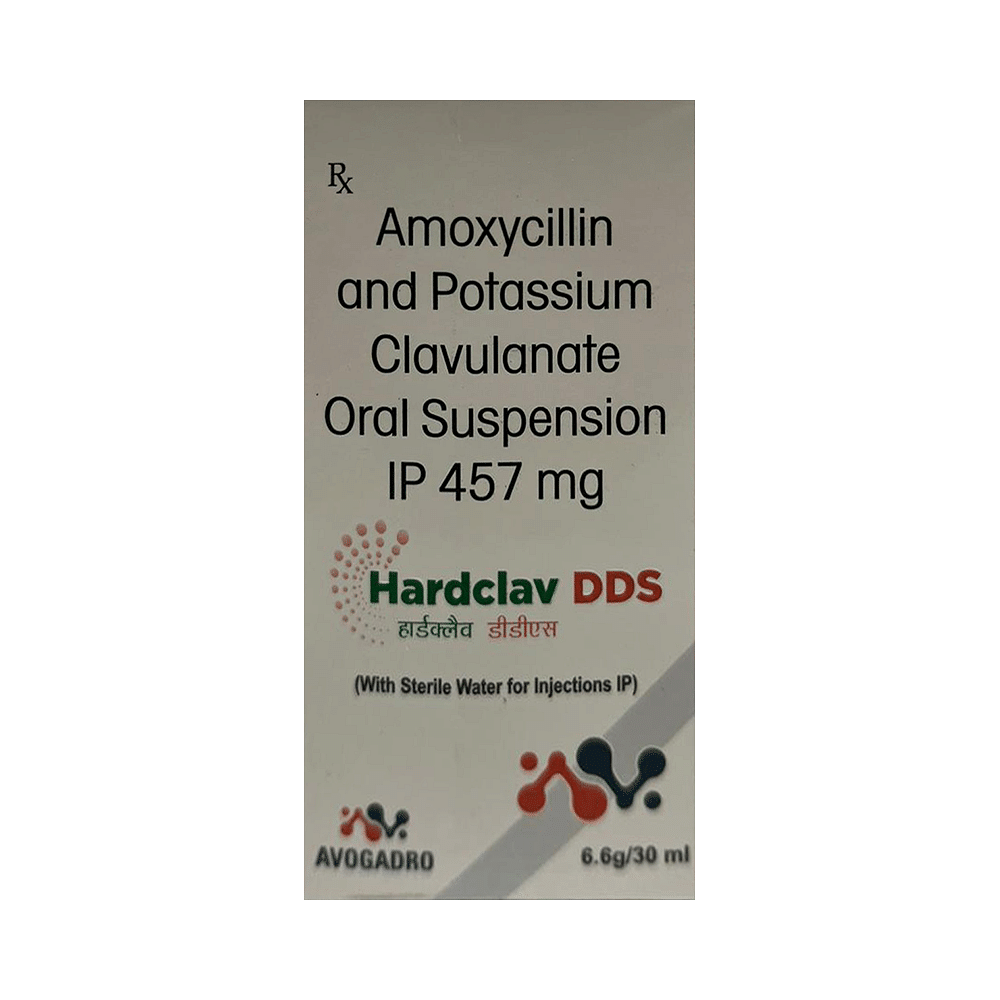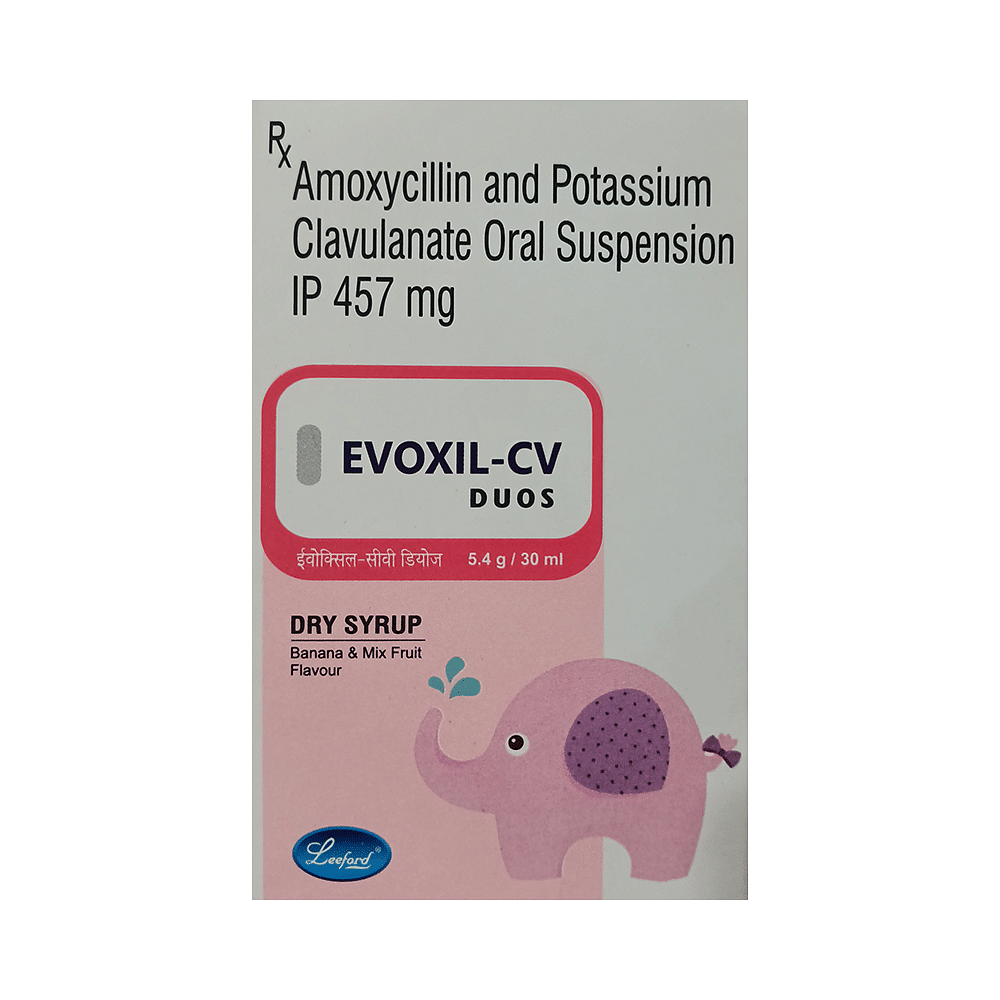
Wilmox-CV Dds Oral Suspension
Manufacturer
Alvoncare Pharma
Salt Composition
Amoxycillin (400mg) + Clavulanic Acid (57mg)
Key Information
Short Description
Wilmox-CV Dds Oral Suspension is an antibiotic medicine that helps treat bacterial infections of the ear, nose, throat, chest, lungs, teeth, skin, and urinary tract.
Dosage Form
Oral Suspension
Introduction
Wilmox-CV Dds Oral Suspension is an antibiotic medicine that helps treat bacterial infections of the ear, nose, throat, chest, lungs, teeth, skin, and urinary tract. It is capable of killing bacteria that have become resistant to other therapies and thus also helps treat tuberculosis that is resistant to other treatments.
Directions for Use
Your child must complete the entire course of antibiotics. Stopping too soon may cause the bacteria to multiply again or cause another infection.
How it works
Wilmox-CV Dds Oral Suspension is an antibiotic. It has two active agents amoxycillin and clavulanic acid. Amoxycillin works by preventing the formation of the bacterial protective covering (cell wall) essential for the survival of the bacteria. Whereas clavulanic acid serves a special purpose of inhibiting an enzyme (beta-lactamase) that is produced by resistant bacteria. This makes the combination of amoxycillin and clavulanic acid an effective line of treatment for many types of infections.
Quick Tips
Your child must complete the entire course of antibiotics. Stopping too soon may cause the bacteria to multiply again or cause another infection. Encourage your child to drink plenty of water in case diarrhea develops as a side effect. Never give Wilmox-CV Dds Oral Suspension until and unless prescribed by the doctor. Do not give Wilmox-CV Dds Oral Suspension to treat common cold and flu-like symptoms caused by viruses. Check ‘expiry’ before giving Wilmox-CV Dds Oral Suspension to your child. Immediately discard all the expired medicines.
Related Medicines

Mox CV DS CP Oral Suspension Delicious Strawberry

Moxclav DS 457mg Oral Suspension

Hardclav DDS Oral Suspension

Amxclavin Safe DS Oral Suspension

Moxyben Oral Suspension

Evoxil-CV Duos Dry Syrup Banana & Mix Fruit

Phinmox CV Oral Suspension

Volveclav-DS Dry Syrup Orange

Ikclav DS Dry Syrup

Moxycare CV Duo Dry Syrup
Frequently asked questions
Can other medicines be taken simultaneously with Wilmox-CV Dds Oral Suspension?
Wilmox-CV Dds Oral Suspension may interact with certain medications or substances. Consult your child's doctor before starting any new medication to ensure there is no potential for interaction.
Can I get my child vaccinated while on treatment with Wilmox-CV Dds Oral Suspension?
Generally, antibiotics do not interfere with vaccines or cause adverse reactions in children. However, it's best to avoid administering the vaccine until your child recovers from the illness. Once they are feeling better, the vaccine can be given. Always consult your child's doctor before vaccinating a child who is on medication.
What lab tests should I have my child undergo while on long-term Wilmox-CV Dds Oral Suspension?
Periodically, the doctor may monitor kidney and liver function tests to assess your child's condition during prolonged therapy.
Can I administer a higher dose of Wilmox-CV Dds Oral Suspension to my child than recommended?
It is not recommended to exceed the prescribed dosage of this medication. If your child experiences worsening symptoms, please consult with their doctor for re-evaluation.
When should I stop giving Wilmox-CV Dds Oral Suspension to my child?
Do not discontinue treatment unless the full course of medication is completed. Symptoms may improve before the infection is completely eradicated, so continuing the medication for the recommended duration is crucial.
Can Wilmox-CV Dds Oral Suspension cause diarrhea in my child?
Yes, Wilmox-CV Dds Oral Suspension can cause diarrhea. This is a common side effect associated with antibiotics. Additionally, the medication may affect beneficial bacteria in your child's stomach, contributing to diarrhea. In such cases, encourage them to drink plenty of fluids and consult their doctor if diarrhea persists or shows signs of dehydration like dark-colored, strong-smelling urine and decreased urination frequency.
Do all viral common colds always lead to bacterial infections?
No, not all viral colds result in secondary bacterial infection. Antibiotics should only be used when prescribed by a healthcare professional after confirming the presence of a bacterial infection and for proper course.
My child's nose discharge is yellow-green. Is this a sign of a bacterial infection?
Yellow or green mucus in the nose is often a normal occurrence during common colds, as it may thicken and change from clear to yellow or green. It typically lasts for 7-10 days. You should not administer antibiotics without consulting your child's doctor.
What signs require immediate medical attention for my child?
Call your child's doctor immediately if your child experiences any of the following: serious allergic reactions (breathing difficulties, skin rashes), severe gastrointestinal issues (diarrhea, vomiting), or liver damage (weakness, paleness, jaundice). These are rare but should be addressed by a medical professional.


